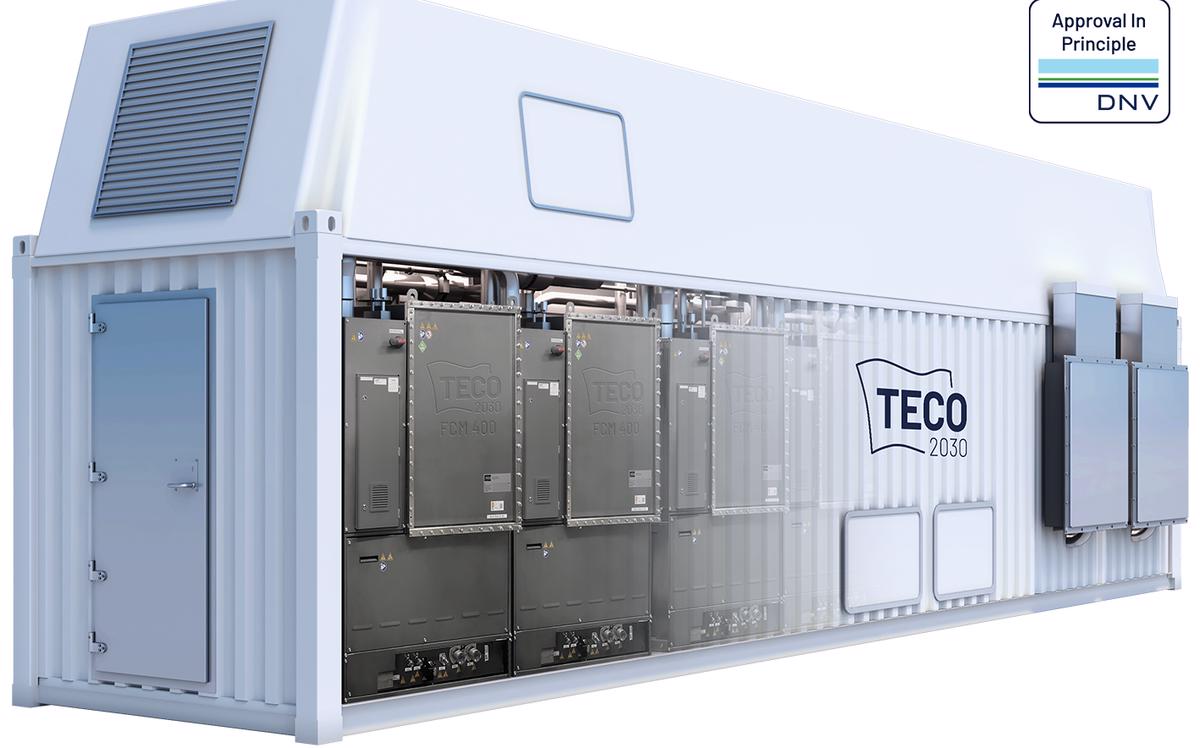DNV nod for onboard use of TECO 2030’s fuel cell generator
Norwegian renewable tech firm TECO 2030 has received an approval in principle (AiP) for its fuel cell power generator (FCPG) for onboard use in the maritime sector.
 PHOTO: Illustration of TECO 2030’s fuel cell power generator (FCPG). TECO 2030
PHOTO: Illustration of TECO 2030’s fuel cell power generator (FCPG). TECO 2030
A FCPG is a device that produces electricity by converting the chemical energy from a fuel, like hydrogen, into electrical energy through an electrochemical reaction. The FCPG can be operated on compressed and liquid hydrogen, or hydrogen derived from hydrogen carriers such as ammonia and methanol.
TECO’s FCPG is integrated with multiple modular proton exchange membrane (PEM) fuel cell systems specifically designed for “heavy-duty marine applications,” offering an electrical capacity of 400 kilowatts (kW).
Onboard a vessel, the FCPG can be utilised for both “propulsion and auxiliary power,” TECO 2030’s chief executive Tore Enger said.
However, the company has not provided any details regarding which vessel types can be powered by the FCPG or if there are any orders for it.
Possibilities of hydrogen beyond short-sea shipping
While hydrogen presents an appealing option for decarbonising smaller vessels, its viability for powering large ocean-going vessels is currently limited. This is primarily due to the constraints of presently deployed PEM fuel cells, which exhibit restricted capacity to effectively power large marine vessels.
PEM fuel cells necessitate a continuous supply of hydrogen for power generation, leading to increased hydrogen consumption for larger vessels undertaking long-distance voyages. Moreover, the considerable cost and logistical challenges associated with storing substantial quantities of hydrogen onboard render PEM fuel cells economically impractical for extended maritime voyages.
Consequently, the propulsion of larger vessels requires the adoption of high-efficiency fuel cell technologies better suited to prolonged voyages, such as solid oxide fuel cells (SOFCs). However, given the nascent stage of SOFC technology in marine applications, a complete transition to hydrogen propulsion for ocean-going vessels is anticipated to entail a considerable period of development and implementation.
By Tuhin Roy
Please get in touch with comments or additional info to news@engine.online






